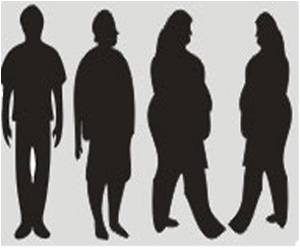Artificial light from screens disrupts your body clocks and brown fats that burn calories. This increases the risk of obesity.

The researchers mentioned that on an average people stay online for about 20 hours a week and for 16 to 24-year-olds this figure rises to more than 27 hours.
Sander Kooijman, a researcher said that the increasing prevalence of obesity was associated with a disrupted sleep-wake pattern in humans and coincides with the availability of artificial light.
The survey is published in National Academy of Sciences journal Proceedings.
Source-Medindia
 MEDINDIA
MEDINDIA




 Email
Email










